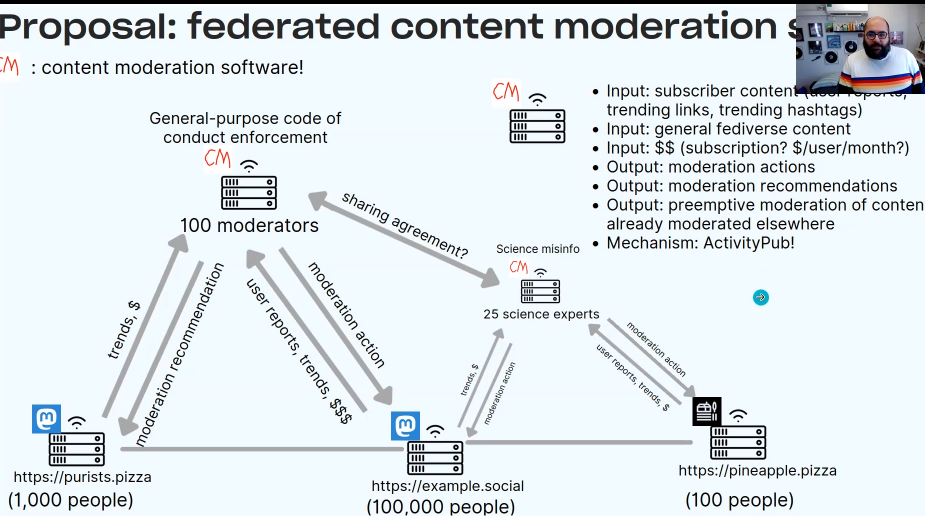Mozfest and the fediverse
Mozilla hosted their annual Mozfest festival this week, a virtual event with lots of different sessions and speakers about different subjects. Three sessions were specifically about the fediverse, and I joined them to see what people were talking about.

Mozilla hosted their annual Mozfest festival this week, a virtual event with lots of different sessions and speakers about different subjects. Three sessions were specifically about the fediverse, and I joined them to see what people were talking about.
One of the main things that stuck out was the focus on the fediverse, and not on Mastodon. One common frustration is the tendency of media to talk about Mastodon, even when they mean the larger fediverse. This was not the case at Mozfest, all three sessions were specifically about the fediverse at large.
Some people hoped that Mozilla would use Mozfest as an opportunity to officially announce their mozilla.social Mastodon server. That did not happen, a Mozilla employee confirmed during a session that they are still testing the server internally with Mozilla employees. Although this is not confirmed, it seems that the testing mainly involves the signup and account creation process; the current signup process shows that you can use your Mozilla/Firefox account to register and sign in with the server. Once this works this would significantly decrease friction in the signup process for new users.
The sessions
The first session was about moderation, called 'Community-led, decentralized content moderation on the fediverse', led by Darius Kazemi. One of his main ideas is decoupling moderation and server administration to a certain extend. Darius Kazemi notes that community moderation functions well regarding norms and guidelines that are specific to the community. Since these moderators are usually part of the community, they have a clear understanding of what is appropriate. However, there are more struggles in other cases. This can be related to the need for expert knowledge, but also on a more practical level when there is a high volume of spam all of a sudden.

Darius Kazemi came with the following proposal, where servers can outsource parts of their moderation needs, depending on their individual situation. A server can decide to outsource a small part of their moderation and only get recommendations back. Or a large server can outsource the moderation completely. Or the possibility to outsource part of the moderation that only relates to misinformation to an expert body.
To be clear, this is a personal proposal, and not currently actively being implemented right now. However, it is an interesting approach, and shows a clear possibility of how moderation can scale in a growing fediverse, that is worth consideration.
Making and designing the fediverse
Ian Forrester led an interactive workshop on designing the fediverse, with a lot of user input. The board that was used during the interactive workshop is still accessible and visible through this link. One of the downsides of feed/based social networks is that it is hard to get a consensus opinion on things, as opinions and posts are fleeting. Workshops like these are valuable in providing an aggregated and persistent place of how people think about the fediverse.
It's interesting to see how much interest there was in other platforms beyond Mastodon and other microblogging platforms. Participants were excited about products such as Castopod, Pixelfed and PeerTube. Especially Castopod was notable, since that does not regularly come up when people talk about the fediverse.
Other feedback include more common remarks, such as the issues with search, quote posts. People also have struggles with a purely chronological timeline, as that makes it harder to catch up if you've not been online for a while. The issue of not being able to import posts when moving your account to a different server.
Overall, the sessions were hopeful and forward looking, people are excited about what the fediverse can bring. In all sessions, people were thinking about all the possibilities that go beyond microblogging, which is exciting to see. Now it is waiting to see what Mozilla will bring to the table and how the organisation will help grow the fediverse.



